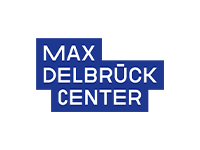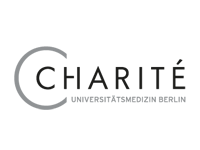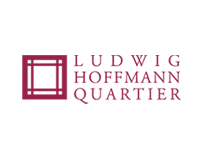Your selection
Research, Patient care / 15.08.2025
Boosting vaccine efficacy as we age
Can an aging immune system be coaxed into responding to vaccination like its’ younger self? In “Nature Aging,” Sebastian Hofer, Katja Simon and colleagues discuss emerging interventions that may boost older adults’ response to vaccines. They are also recruiting volunteers for a clinical trial of their own.
As we age, our immune systems weaken. This decline – known as immunosenescence –makes older people more vulnerable to infections and less responsive to vaccines, creating a self-reinforcing vicious cycle. While lifestyle-related and age-associated diseases such as obesity and diabetes contribute to this decline, the core problem lies in how aging alters immune cells and their internal maintenance systems.
In a review article published in “Nature Aging,” Dr. Sebastian Hofer, a postdoc in the Cell Biology of Immunity lab of Professor Katja Simon at the Max Delbrück Center, and colleagues in the U.K. discuss how we may be able to boost vaccine immunity in older adults by incorporating knowledge gleaned from the latest research on the biology of aging. Traditionally, vaccine makers have relied on technological approaches, such as adding compounds to vaccines to elicit a stronger immune response – but these are not always effective.
In recent years, it has become clear that there are other approaches that potentially complement technological fixes, and may be more practical than developing novel vaccines for different age groups, says Simon. Researchers studying the biology of aging, for example, have shown that certain drugs such as metformin, used to treat type 2 diabetes, and rapamycin, commonly given to organ transplant recipients, can extend life and health span in insects, rodents and other animals. They do so in part by acting on the immune system. Other research has also shown that exercise and restricting calories in both humans and animals can slow the decline in immune cell function as we age. Such research has been complemented by a better understanding of the cellular mechanisms behind this decline in immunity, Hofer adds.
In the following interview, Hofer and Simon discuss how incorporating this knowledge into vaccination efforts might help to improve our aging body’s response to vaccines. To wit, they are recruiting volunteers for a clinical trial to test specifically whether dietary intervention might improve vaccine response.
Can you explain immunosenescence and how immunity wanes with age?
Katja Simon: Immunosenescence is a broad term for the gradual decline of the immune system as we get older. Chronic diseases are more common in older people and these contribute to a decline in immune function. But a central hallmark of immune aging that happens even in the absence of chronic disease is a decline in the ability of immune cells to clean out damage and waste, along many other molecular alterations. This particular process is called autophagy and it’s a fundamental recycling process that takes place in every cell of the body. A decline in “autophagy flux” – the efficiency of the cells’ recycling cycle – contributes to a weakened immune response in older adults. Our lab, has spent years studying autophagy and how restoring it in aging immune cells may enhance immunity.
Of all the interventions shown to extend lifespan in animals such as drugs or lifestyle changes, do we know how they work?
Sebastian Hofer: Scientists have a good idea of how interventions like caloric restriction and rapamycin may extend lifespan – at least in animals – but the picture in humans is still evolving. Many interventions tested in the field of aging biology seem to work by nudging cells into a kind of protective, energy-saving mode: they reduce inflammation, slow metabolism, and boost autophagy. Restricting calories does this naturally, while drugs like rapamycin mimic some of those effects by targeting specific cellular pathways. These changes help cells repair damage, stay resilient, and function better as we age. However, while the biology is promising, especially in lab animals, we’re still learning how well these interventions work in people – and who and which tissues might benefit the most.
Have any of these interventions been tried to improve vaccine response in older adults?
SH: While more and more researchers are applying knowledge from aging biology to the design of clinical trials, based on our review of the literature, rapamycin appears to be the only one sufficiently tested regarding its impact on vaccine response. These studies suggest that rapamycin can enhance vaccine efficacy in older adults by tuning the immune system to respond more robustly. Rapamycin works by blocking a protein called mTOR, which acts like a master switch in cells that controls growth and energy use. When mTOR is inhibited, cells shift into a more cautious, repair-focused state – reducing inflammation, improving autophagy, and making immune cells more responsive to stimuli.
You are currently recruiting volunteers for a clinical trial to test whether dietary intervention can boost immune response to vaccines. Can you provide more details?
SH: The pilot trial, named VITAL, will recruit 24 volunteers over the age of 60. Half will be asked to eat their meals within an 8-hour window, and nothing in between. We want to see if a 4-week phase with intermittent fasting can improve the immune response to influenza and COVID vaccines compared to the non-fasting group. Our trial is based on preclinical evidence showing that short-term dietary interventions can rejuvenate immune function – possibly by improving autophagy. And we are focusing on the seasonal influenza vaccine because studies have shown that a significant proportion of people over the age of 60 respond poorly to flu vaccines. People in our trial will also be outfitted with technology and administered blood tests to monitor their adherence to the fasting protocol.
Why did you choose a dietary intervention over a drug like rapamycin?
SH: Since fasting is non-pharmacological and physiological, it's an attractive strategy from both a safety and accessibility perspective. Also, this type of trial, which is almost never done in a commercial setting, is also well suited for a government funded institute like our own. Moreover, tackling the complex problems of immune system aging will also likely benefit from interventions that target multiple molecular pathways at once, such as restricting calories. But we are also studying other interventions. The Simon lab for example has shown in a clinical trial that the dietary supplement spermidine can also boost immune response to vaccines in older people. The research is currently pending publication, but our findings suggest that spermidine also may help improve COVID vaccine response in older populations.
Why is this such an important public health issue?
KS: Our populations are aging and we know that after the age of 60 to 65, people are more susceptible to infections. The 60 plus demographic group globally was the most severely affected by the COVID-19 pandemic and it is also the age group with the highest risk of death from infection with influenza. Unfortunately, data consistently show that the effectiveness of various protective vaccines decreases with age, especially in those who need protection the most. We are likely also facing a future of more frequent outbreaks of new infectious diseases. A straightforward and easily implemented intervention that improves immunity and vaccine efficacy in this group could save a lot of lives.
Sebastian Hofer, Katja Simon and their team are currently recruiting people over the age of 60 for their clinical trial to test whether intermittent fasting can boost response to influenza and COVID vaccination. For more information or to volunteer for the trial, please contact Sebastian (Sebastian.hofer@mdc-berlin.de) or the Clinical Research Unit at the ECRC (vital@charite.de).
Further information
Overview News
News Buch Berlin
Leif Si-Hun Ludwig awarded professorship
Leif Si-Hun Ludwig has been awarded a prestigious Heisenberg professorship in stem cell dynamics and mitochondrial genomics by the the Berlin Institute of Health at Charité, a position funded by the G...
more ...Professorship awarded to Mina Gouti
Mina Gouti has been awarded a professorship at Charité – Universitätsmedizin Berlin. The appointment will strengthen her pioneering organoid research at the Max Delbrück Center and deepen collaboratio...
more ...Pentixapharm publishes positive Phase II data on Pentixafor PET diagnostics
The study confirms PENTIXAFOR-PET as a non-invasive alternative to adrenal vein catheterization in primary aldosteronism
more ...Events Buch Berlin
27.02.2026, 19:00
Filmabend und Gespräch: "Nah am Herzen" - über den Krieg in der Ukraine
Ukrainischer Spielfilm mit deutschen Untertiteln
more ...27.02.2026, 20:00
Comedy - Achtung, Zwerchfellattacke - Thomas Nicolai präsentiert "Mit alles! Extrascharf!"
Thomas Nicolai serviert seinen Gäste extrascharfe Häppchen
more ...28.02.2026, 17:00
Wunderwerk der Mechanik
Führung und Experimentalvorträge im Speicher
more ...






